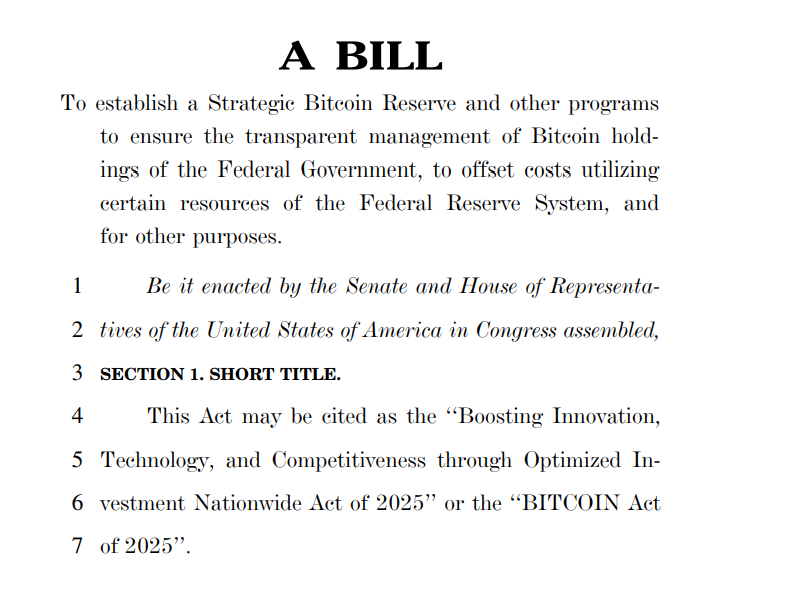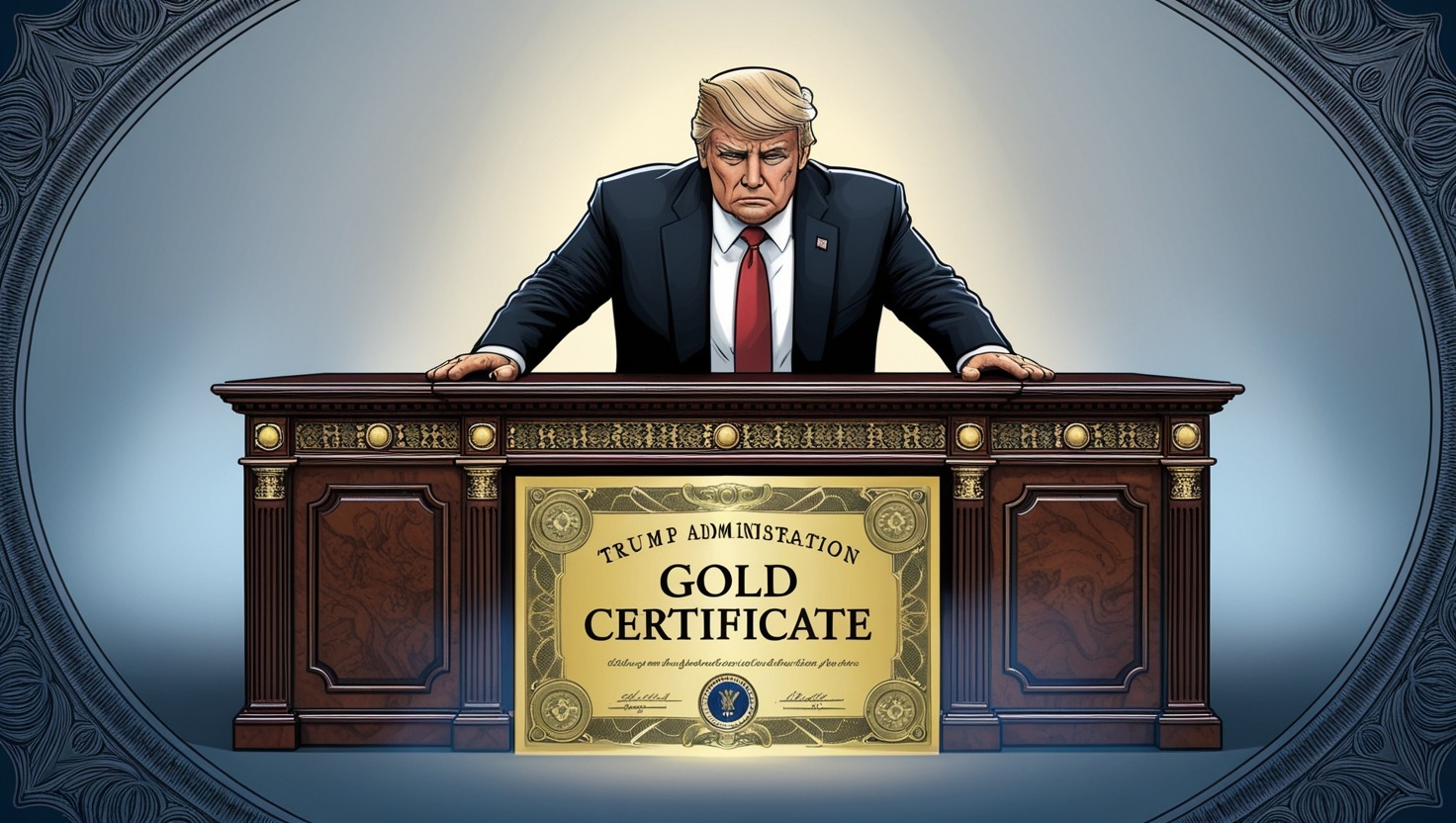- The Trump government is looking into utilizing gold certificate revaluation in order to purchase additional Bitcoin without impacting the country’s budget.
- Senator Cynthia Lummis’ BITCOIN Act of 2025 introduces the idea of revising gold certificate values based on current prices of gold, raising funds to buy Bitcoins.
- The U.S. government currently owns approximately 207,000 Bitcoin, and officials highlight Bitcoin’s distinct position as a commodity, distinct from other cryptocurrencies.
The Trump administration explores Gold Certificate and is looking to enhance its Strategic Bitcoin Reserve without spending taxpayer funds.
Bo Hines, the President’s Council of Advisers on Digital Assets head, spoke on this during the Crypto in America podcast. He added that a lot of ideas are being considered, and one of the options with potential is using gold certificate gains, which are currently below their market equivalent price relative to gold.
The strategy would entail revaluating these certificates so that the government can purchase additional Bitcoin without impacting the national budget.
Bo Hines said, the crypto council is open to creative ways to build the government’s Strategic Bitcoin Reserve.
Gold Certificate Revaluation as a Strategy
Senator Cynthia Lummis’ BITCOIN Act of 2025 corroborates this concept by proposing the Federal Reserve transfer all the gold certificates to the Treasury. The Treasury would create new certificates with the actual market value of gold.

As gold certificates are now worth only $42.22 an ounce while gold is selling for more than $3,000 an ounce, this revaluation would bring in considerable money. The strategy is in line with Trump’s March 6 executive order, which targets budget-neutral methods to accumulate Bitcoin.
The U.S. government already owns around 207,000 Bitcoin, primarily confiscated from criminal cases, and is thus the largest known national owner of the asset. Hines highlighted that Bitcoin is unique and must be treated independently from the rest of the virtual currencies.
He added that Bitcoin is a commodity, and not a security, and that it lacks a central issuer. This view is also held by White House officials, including Commerce Secretary Howard Lutnick, who clarified that Bitcoin is a unique entity in relation to other virtual currencies.
Seeking More Innovative Solutions
Hines emphasized the crypto council being willing to explore other suggestions for how the reserve might be extended without affecting the taxpayers.
According to him, the negotiations with multiple agencies would open up additional more innovative alternatives.
The goal of the government is to shore up its reputation in Bitcoin while avoiding financial disquiet and unnecessary use of public money.
Also Read: Bitcoin Recover is a struggle During Market Uncertainty



